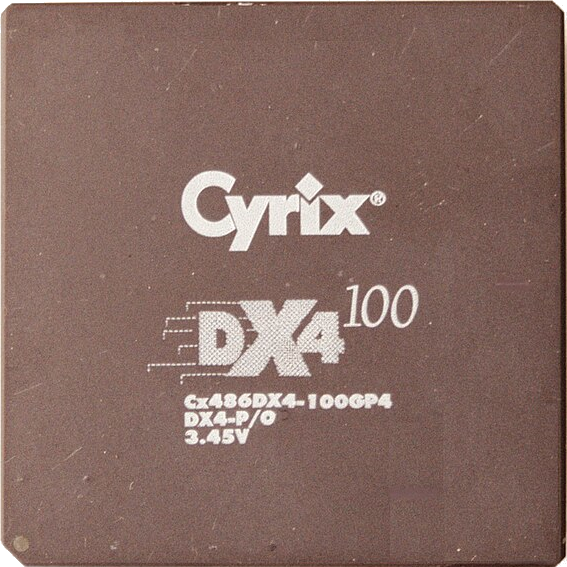I’m thinking of the things listed on the Privacy Guides real-time communication section

The difficulty of any non-mainstream chat app is getting other people to use it. On that list, Signal is the most probable to be recognized by people who don’t have a particular interest in privacy, so it’s more likely to get more people to use it.
besides that, and besides the lack of forward secrecy on matrix and session already mentioned by privacy guides, do some of these alternatives have worse security, privacy, or ux than signal in some way?

Matrix also does have a pretty big problem with meta data. By default it stores a ton of meta data (at least the reference server implementation does) and I am not sure if this is even a solvable problem without redesigning the protocol. When opting for an alternative to Signal, XMPP is probably the better choice.
and how are they ordered in popularity?

That’s a good question. I wonder if there are available user numbers for them.
I imagine it’s regional and depends on what communities you are in. SimpleX chat seems pretty popular these days in privacy circles but I could see something like Briar being useful if traditional networks weren’t reliably available for example.

Why is Session always mentioned ? It’s an Australian company, in a land with zero constitutional oversight I’d be more inclined to think its a honeypot then a privavy focused chat app. Anom springs to mind as an example.

You should not trust any company or organization. What matters is the security and privacy or the app and service.

Signal isn’t federated. Signal has centralized servers. Signal requires phone number identification to use it. Signal stores your encryption key on their servers… Relying on sgx enclaves to ‘protrct’ your encryption key.
Signal can go down. Signal knows who you talk to, just by message timing. Signal knows how frequently you talk to someone. Signal can decrypt your traffic by attack their own sgx enclaves and extracting your encryption key.
These are all possible threats and capabilities. You have to decide what tradeoff makes sense to you. Fwiw I still use signal.

Many assertions without any proof. Could you at least point out the sources for such statements?

Read the post by signal. Note the use of the word “plaintext”.
we don’t have a plaintext record of your contacts, social graph, profile name, location, group memberships, groups titles, group avatars, group attributes, or who is messaging whom.
Whenever someone qualifies a statement like this, without clarifying, it’s clear they’re trying to obfuscate something.
I don’t need to dig into the technical details to know it’s not as secure as they like to present themselves.
Thanks. I didn’t realize they were so disingenuous. This also explains why they stopped supporting SMS - it didn’t transit their servers (they’d have to add code to capture SMS, which people would notice).
They now seem like a honeypot.

They are very much not. Anyone who tells you this is a state influencer or someone who believed a state influencer.

Saying something has the capabilities of a honeypot, is the correct thing to do when we’re assessing our threat model.
Is it a honey pot? I don’t know. It’s unknowable. We have to acknowledge the the actual capabilities of the software as written and the data flows and the organizational realities.

My concern is people stay away from Signal in favor of unencrypted privacy nightmares. It happened with DDG a while back where I knew people who used Google because DDG had privacy issues. It sounds dumb but it is a true story.

Sure. I still encourage people to use signal. Most people don’t have a threat model that makes the honey pot scenario a viable threat. In this thread we are talking about its downsides, which is healthy to do from time to time. Acknowledging capabilities is a good exercise.

Signal stores your encryption key on their servers…
That would surprise me. What’s your source for this?


master_key is never stored or sent to the SGX, only c2, the entropy bits. The user’s password is still required to generate the key.

Brute forcing 4-6 digit pins is trivial.
And even if the user set a actual password, it’s still very trivial

“Very trivial” if they set a proper password? Yet the source you provide says it’s robustly secure

I can’t find the phrase robustly secure in the last link:
Signal asks users to set a pin/password which needs to be periodically reentered. This discourages people from using high entropy passwords like BIP38.

So my takeaways from this link and other critiques has been:
1.Signal doesn’t upload your messages anywhere, but things like your contacts (e.g. people you know the usernane/identifier, but not phone number of) can get backed up online
One challenge has been that if we added support for something like usernames in Signal, those usernames wouldn’t get saved in your phone’s address book. Thus if you reinstalled Signal or got a new device, you would lose your entire social graph, because it’s not saved anywhere else.
2. You can disable this backup and fully avert this issue. (You’ll lose registration lock if you do this.)
3. Short PINs should be considered breakable, and if you’re on this subreddit you should probably use a relatively long password like BIP39 or some similar randomly assigned mnemonic.
If an attacker is able to dump the memory space of a running Signal SGX enclave, they’ll be able to expose secret seed values as well as user password hashes. With those values in hand, attackers can run a basic offline dictionary attack to recover the user’s backup keys and passphrase. The difficulty of completing this attack depends entirely on the strength of a user’s password. If it’s a BIP39 phrase, you’ll be fine. If it’s a 4-digit PIN, as strongly encouraged by the UI of the Signal app, you will not be.
4. SGX should probably also be considered breakable, although this does appear to be an effort to prevent data from leaking.
The various attacks against SGX are many and varied, but largely have a common cause: SGX is designed to provide virtualized execution of programs on a complex general-purpose processor, and said processors have a lot of weird and unexplored behavior. If an attacker can get the processor to misbehave, this will in turn undermine the security of SGX.

One nit to pick, messages have to transit through the signal network. And they could be recorded during transit. Carnivore style

True, but that’s more or less out of the scope of this thread. I could go on for way longer about centralized versus federated services…

Signal is still secure. If it wasn’t it wouldn’t be used in Military applications.

Secure within the context of a certain threat model.
The French government does not endorse signal for government communication as an example
And I would highly suspect the Russian government would not use signal either.
I cite both of these as examples of threat models that can’t ignore some of the potential capability of the signal.

In the US government organizations are trying to protect themselves from each other and themselves. (Its messy)
Not to say that Signal is perfect (its not) but if the DoD recommends it and has guidance on how to harden it then it can’t be to bad.

What’s your use case? Likeminded techie friends? Family members?
Signal works well as an alternative to the likes of Telegram and WhatsApp, even if it still requires a phone number and is centralised. Far easier to explain to the family instead of “oh well you can sign up on this website or this website or that website”.
Granted, if you want to host a small Matrix server just for the family, then go for it.

It doesn’t require a phone number anymore.
Edit: I was wrong. :p

As far as I know Signal still requires a phone number to register an account. Since a while you can use usernames to connect with others instead of exchanging phone numbers.

The username release is quite recent for those not participating in beta versions of Signal.

Ohh, I wasn’t aware that it was still necessary for registering.

I’ve had good fortune converting some family and friends to use XMPP.
People always mention fragmentation, and while there is some truth to it, it can be massively minimised by choosing blessed clients and servers for them to use.
In my case, I run my own server, and thoroughly test the clients (especially the onboarding flow) that I expect them to use, so that any question they have, I can help them out with quickly. Since we’re all on identically configured servers, it minimises one whole class of incompatibilities.
There is still unfortunately a bit of a usability gap compared to Signal - particularly on the iOS clients. But they have come a long way and are consistently improving.

You can host Simplex server and clients

The major one that concerns me is who is behind them. Even if we trust that their encryption is not backdoored, there is a lot of information that can be gathered just from the frequency of messages and who they are between.
If it came out that a three letter agency was running one of these networks, it would not suprise me at all.

The only fix for that is for nobody to communicate, ever.

The US military uses Signal for communication

I’m using Matrix/element. I rather not give my phone number, you see, which is must-have for Signal. I have installed the app in my family’s phones, and they were accepting, so all is well. I don’t need to communicate through private messaging with anybody else, so who cares if others don’t use matrix?

Yeah, about that. https://www.signal.org/blog/phone-number-privacy-usernames/

That’s my point. The phone number IS STILL required to create an account at Signal!

I see.

You can always run a self-hosted version of Signal or a fork of it, then you can do whatever you want with it, including not using phone numbers.

Wait, what?! You can self-host Signal? Please send me a guide!

You can. But you’re not going to. Signal isn’t federated. Not only do you need to self host your own server, you need to build your own clients, and then have everybody you want to talk to using your specific clients talking to your specific server.

Ah, yeah, of course :/ Will stick to my own XMPP server then.

Let’s not forget that for those looking for alternatives, a key feature of signal is/was its SMS integration.
I use silence, a fork of signal.
- upside: it can still send and receive SMS messages!
- downside: nobody else uses it, so it only does SMS as a result.

For those who don’t remember, not only could signal be used for SMS, it used to be able to do encrypted sms convos.

Also it sadly hasn’t been maintained for years

The need to wait for an SMS to register a new account and the potential for recaptcha loop (which I have experienced) is a serious downside to Signal. Something I never need worry about with xmpp, matrix or threema.
